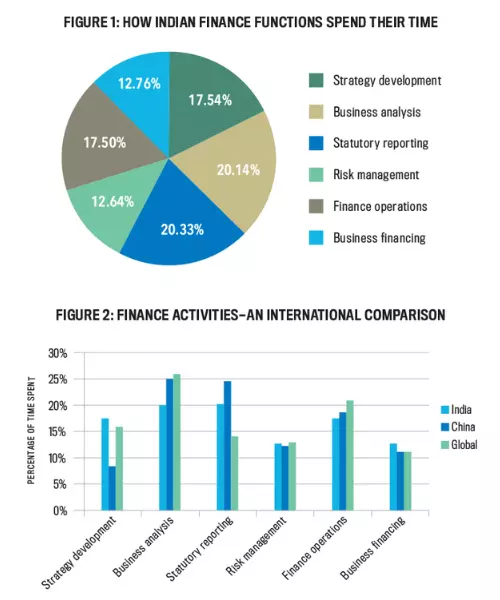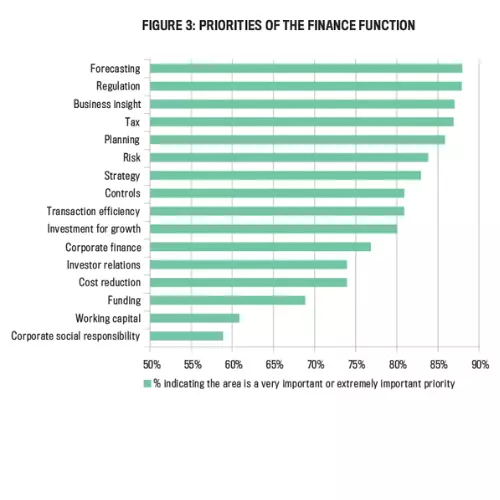Importance of Learning Online Management Accounting Courses

Here at Uplyrn, we offer a wide variety of hard skills and soft skills courses, including online management accounting courses for beginner, intermediate and advanced levels. Plus, they are all given out at much more discounted prices than the original price and at very reasonable rates. Doing these online management accounting courses with us can help you in your student life and your career since they are designed to meet your needs and requirements and how you want your online accounting courses to be. We also provide these accounting courses online with certificate of completion.
Jump To Section

Earn As You Learn
Earn 25% commission when your network purchase Uplyrn courses or subscribe to our annual membership. It’s the best thing ever. Next to learning,
of course.
Why Do We Need Online Management Accounting Courses?
Management accounting is a relatively new development that has facilitated efficient and adequate decision-making in management roles. All management accounting approaches and tools help make strategic management decisions, such as cost control, organizational planning, profit maximization, and administrative control.
It incorporates numerous modern costing strategies, such as responsibility accounting and ABC, that assist businesses in reaching a competitive global framework. It aids in expanding market potential and adding product lines, which increases the firm's value to business.
Managerial accounting assists managers in making operational decisions aimed at increasing the company's operating efficiency, which also aids in long-term investment decisions.
Management accounting is essential in the company because it allows you to track income and expenses, maintain statutory compliance, and offer quantitative financial information to investors, management, and the regulatory authorities for business choices.
The duration of these management accounting courses varies greatly; it often ranges from 2 to 3 years at the graduate level, two years at the postgraduate level, and one year in the case of diploma and certificate programs, which are typically a few hours and can take up to one year.
Managerial Accounting, Advanced Auditing/Accounting, Financial Accounting, Accounting Information Systems, Management, and Tax Planning, Forensic Accounting, Financial Statement Analysis and Interpretation, Cost Analysis and Control, Profit Planning and Budgeting, Quality Management, and other specializations are available in Accounting Management.
Financial Analyst/Senior Financial Analyst, Finance & Accounts Manager, Budget Analyst, Treasury & Payroll Manager, Staff Accountant, Accounting Manager, Vice President - Financial Planning & Analysis, Manager/Director - Data Analytics, Manager/Director - Strategic Planning, CFO, are your career options.
Employers are looking for various skills learned through online management accounting courses, including Introduction to Management Accounting, Financial Accounting, Cost Accounting, Management Accounting, Budgetary Control, and others.
There are three critical financial statements:
- The income statement contains information regarding the profit and loss.
- The balance sheet provides a clear picture of your company's financial situation on a specific day.
- The cash flow statement links the income and balance sheets, reporting the cash generated and spent during a specific period.
To perform well on your job, you must keep your financial documents clean and up to date.
You need to know how to read financial statements in order to better understand the financial health of the organization and the rationale behind management's financial and strategic decisions.

Lean Accounting Online Course
Lean Accounting is a word used to describe how the concepts of the Lean mindset are applied to managing financial procedures and processes. These principles include a focus on providing value to the customer and an effort to eliminate waste.
Businesses that adopt Lean Management and production techniques frequently discover that their current accounting procedures no longer support long-term business goals.
By eliminating waste, enhancing internal processes, and providing greater value to the end-consumer, lean accounting applies lean principles to accounting and finance to drive improvement.
You can learn Throughput Accounting and Lean Accounting where you’ll be taught about the Theory of Constraints, Throughput Accounting, What Lean Accounting is, Seven Aims of Lean Accounting etc.

Reasons Why Small Businesses Need to Manage Accounts
Every firm must manage its transactions and conduct additional operations such as recording, classifying, summarising, and disseminating financial information to decision-makers inside and outside the organization. Accounting handles all of these processes.
Market competition, organizational structures and regulations, and many stakeholders influence a firm's decisions. As a result, small enterprises must emphasize decision-making quality.
Such circumstances give rise to the desire to make key decisions that will make day-to-day operations run more smoothly. Some examples include resource allocation decisions, capital sources, budget allocation, cost control, policy formulation, etc.
The quality of the information offered to management is critical in making these assessments. Management will make better decisions if the financial information is clear, accurate and objective.
As a result, management accounting is called into action. It is a field of accounting that assists management in developing policies, planning, and controlling small business operations. The reasons are:
- Up-to-date management accounts can help you save time - If you find that preparing your year-end accounts takes up a lot of your time, doing accounts every month may seem like an extra strain. However, this should not prevent someone from seeing the benefits of monthly analysis. Instead of receiving bad news at the end of the year, management accounts can help you discover and address problems in your figures as early as feasible. Ultimately, you will save more time by doing a bit each month rather than attempting to figure everything out at the last minute.
- Accurate management accounts can assist you in cost reduction - Identifying difficulties early on will result in significant savings by keeping the situation under control. One such issue that impacts all small businesses is rising costs. The most prevalent are operations, inventory, technology, and personnel. A small business owner must understand how his or her company's money is spent. Management accounts and comprehensive cost analysis can help you identify abnormalities beyond overall expenditures and solve them immediately.
- Clarity of management accounts can aid in preventing fraud - Invoice fraud is one of the most common types of business fraud in the United Kingdom. According to a recent UK Finance poll, more than four out of ten businesses are unaware of the hazards, and it is clear that businesses of all sizes are affected. The scam occurs when fraudsters pose as regular suppliers and trick businesses into transferring money. Because you won't be waiting until the end of the year to analyze your accounts, a frequent evaluation of your financial performance will reveal mistakes and detect fraud early on.
- Management accounts might help you increase your cash flow - The amount of capital available determines the health of your firm. It also depends on your knowledge of future expenses and where you spend your money. You may determine your current cash situation by reviewing your cash flow report, which is part of your management accounts. This allows you to prepare ahead and avoid future cash flow issues. Saving up to three to six months' worth of finances to cover urgent needs such as rent, inventory, supplier bills, and short-term obligations is a solid plan.
- Management accounts can help with funding - You may now understand how critical it is to have adequate capital, especially if you wish to expand your firm. If you're searching for funding to fuel your expansion, banks and potential investors will want assurances that you'll be able to meet your obligations while also providing acceptable returns. They may want to look at more than just your year-end performance. Aside from that, letting them know that you have your business under control daily is a plus. Having monthly management accounts will show that you have a clear grasp on your business and that their money is in excellent hands.
- Management accounts can aid in expansion planning - Management accounts will offer you critical information to plan your growth and expansion, making you an invaluable addition to your company. If you missed your sales target, knowing it before the halfway point of the year will be beneficial. Management accounts can assist you in swiftly identifying sales trends, giving you better information, and modifying your strategy. If you have a large inventory, you should break down your sales by service, product, or category to see what's working and what's not. Without objective data, making informed judgments as a small business owner is nearly impossible.
- Management accounts keep you informed and in command - Finally, management accounts are a must-have in your small business arsenal since they provide information about your firm that will undoubtedly change the game. The appropriate information is critical because it offers you the power to overcome indecision in bad times and move forward in good times.
Management accounts can play a critical role in providing the edge you need to manage your business daily. However, to make good decisions, you must keep adequate records for management accounting. Making decisions based on inaccurate records would result in incorrect decisions. Using an automated bookkeeping system ensures that your statistics are correct and your accounting is accurate.
PayTraQer is an excellent solution for programs that sync your internet payments into QuickBooks. PayTraQer is Intuit-approved and can seamlessly sync your historical and real-time internet payments into QuickBooks. PayTraQer offers a 30-day free trial to allow you to explore the features and capabilities.
Skill Development Through Our Courses Can Be Done While Being On The Job?
The focus is on adults when we are talking about skill development post graduation and studying while on the job. Upskill, which basically means adding new skills which is very important in the long run whether doing a job or not. Having new skills can increase the chances of promotion which results in higher salaries. Most people normally have a busy schedule and often do not get the time to do a course for skill development during office hours or before going to office. Regularly updating your CV is also an added advantage when skills are upgraded and therefore Uplyrn focusing on Action-based learning for adults is the perfect platform.
How Can One Become A Management Accountant?
The management accountant's primary responsibility is to conduct a cost analysis to determine current expenses and make recommendations for future activities.
Accounting majors in management develop students' skills in financial planning, cost control, decision-making, and problem-solving. Students learn how to be strategic partners by applying business knowledge, accounting principles, and financial facts to assist executives in making informed decisions.
Get the job by first getting through a university course, then an apprenticeship, and then finally combining work with continuous learning to keep yourself relevant.
You might pursue a degree in any field and then apply for graduate programs that provide training toward a professional accounting qualification.
If you want to take a more full path to a graduate scheme, you could study accounting, such as
- Accountancy
- Accounting and Finance
- Business and Management
Subjects demonstrating superior arithmetic and critical thinking abilities may be especially beneficial.
Apprenticeships could help you earn professional qualifications. You could begin your career as a management accountant by doing the following:
- A higher apprenticeship in professional accounting.
- A higher apprenticeship in accounting and taxation.
Certified Management Accountant (CMA) certification gives you a significant advantage in the employment market. Some jobs require a Certified Public Accountant (CPA) or a CMA qualifications. CMAs excel in supervising teams, project management, and making high-level business choices.
Even though technology is driving substantial changes in the sector, management accountants remain crucial for making sense of what the numbers are saying to us.
If you wish to become experts in online management accounting you can look at our courses here and choose the courses based on different skill levels i.e, beginner, intermediate and courses which are appropriate for all to start off your management accounting journey.


Leave your thoughts here...
All Comments
Reply